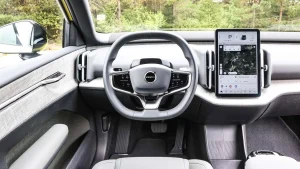The Future of Automotive Technology

The automotive industry is undergoing transformational change at a pace that has never before been seen. Global disruption, technological advances, and changing consumer behavior are reshaping the sector on many levels all at once.
Automakers are transforming from a traditional business model of designing, manufacturing, selling, and servicing vehicles to new mobility business models and services. These include electric vehicles, connected cars, sensors, and mobility fleet sharing.
Electrification
The future of automotive technology will be driven by electrification – the process of replacing something that uses fossil fuels with electricity. This could mean changing the use of a car to an electric vehicle, transforming a home to a smart home with centralized control of appliances and LED bulbs or switching manufacturing processes from coal or other fossil fuels to electricity-powered ones.
Electrification can be beneficial (as opposed to harmful) in certain situations, such as when it reduces emissions or energy costs or supports an improved grid. Benefits of electrification range widely across and within sectors, largely depending on the resource mix and location of the end-use.
Electrification of light- and heavy-duty vehicles has the potential to reduce greenhouse gas emissions from transportation in many ways, including by avoiding fuel consumption during peak times of the day and allowing electricity generation that would otherwise be wasted to be used when electricity is abundant. However, widespread adoption of this approach faces significant challenges.
Connectivity
In the automotive industry, connectivity is a key element for improving road safety, solving traffic congestion, and automating payments for fuel and tolls. It also helps to manage the overall fleet of vehicles and reduces energy expenditure.
Connectivity is a complex area of technology that can involve many different wireless and wired technologies, protocols, and combinations. It includes fixed and mobile voice telecom services, and wired and wireless data communications.
To address this complexity, vehicle architecture is shifting towards domain-based designs with logical systems split into five major functional areas: infotainment, automated driving, powertrain, body, and comfort. This enables a software-defined approach that evolves with new features over a vehicle’s lifetime.
To enable this transition, automotive wireless connectivity no longer needs to be an afterthought. Vendors who offer processing solutions for service-oriented gateways via chipsets, as well as connectivity domain controllers, are in a good position to deliver future-proof connectivity capabilities and support software-defined vehicle architectures.
Artificial Intelligence
AI is the technology that helps automate processes and tasks, improving efficiencies for companies. For example, e-commerce websites use Artificial Intelligence to make product recommendations that customers might be interested in, leading to increased sales.
In the automotive industry, AI systems are a crucial component of developing self-driving cars and ensuring their safety. The World Health Organization estimates that 1.35 million people lose their lives yearly due to traffic accidents, and AI-powered solutions could help prevent these crashes.
Carmakers are utilizing machine learning technologies to speed up design and development cycles and improve the quality of their products. They also use AI to simulate how specific design decisions will affect vehicle performance.
Big Data
The automotive industry uses data for a number of reasons, including to enhance safety, improve efficiency, and provide a higher quality of customer service. Data can be collected from sensors and other devices that are installed in the vehicle.
Big data is a term that refers to the processing of large sets of information. It can come from multiple sources and can include both structured and unstructured data.
It can also be analyzed with artificial intelligence to create useful insights that improve processes and products. In the automotive industry, this can help improve product design, manufacturing, and engineering processes.
Automotive companies are collecting and handling a huge volume of data at an ever-faster pace. This includes data from social media, connected cars, vendors, and other sources.




